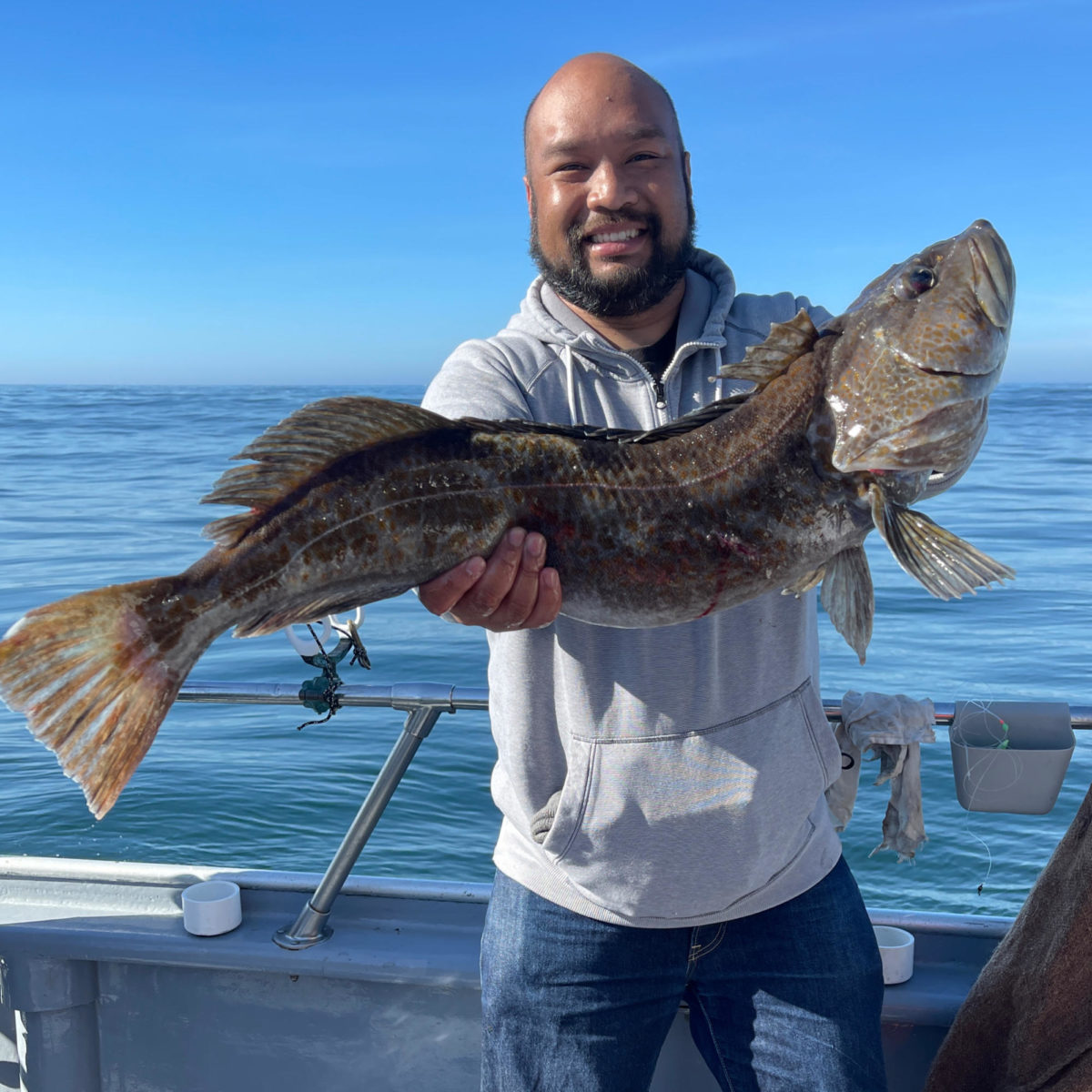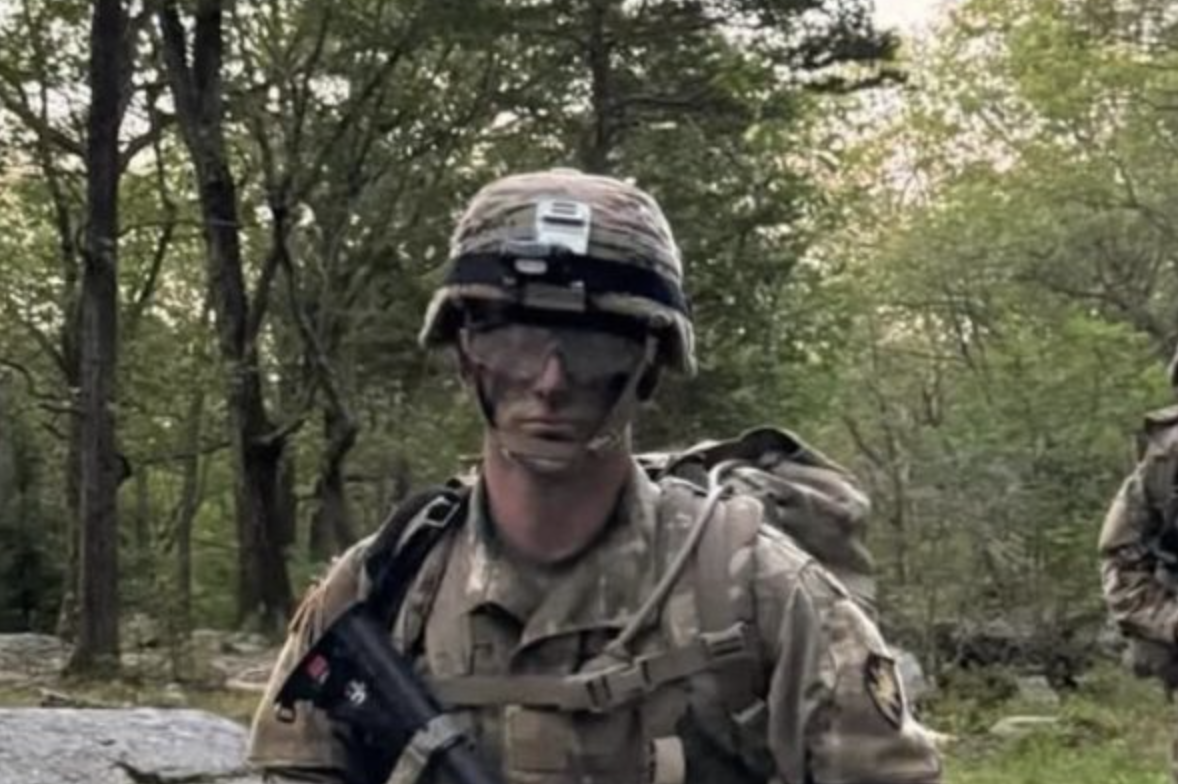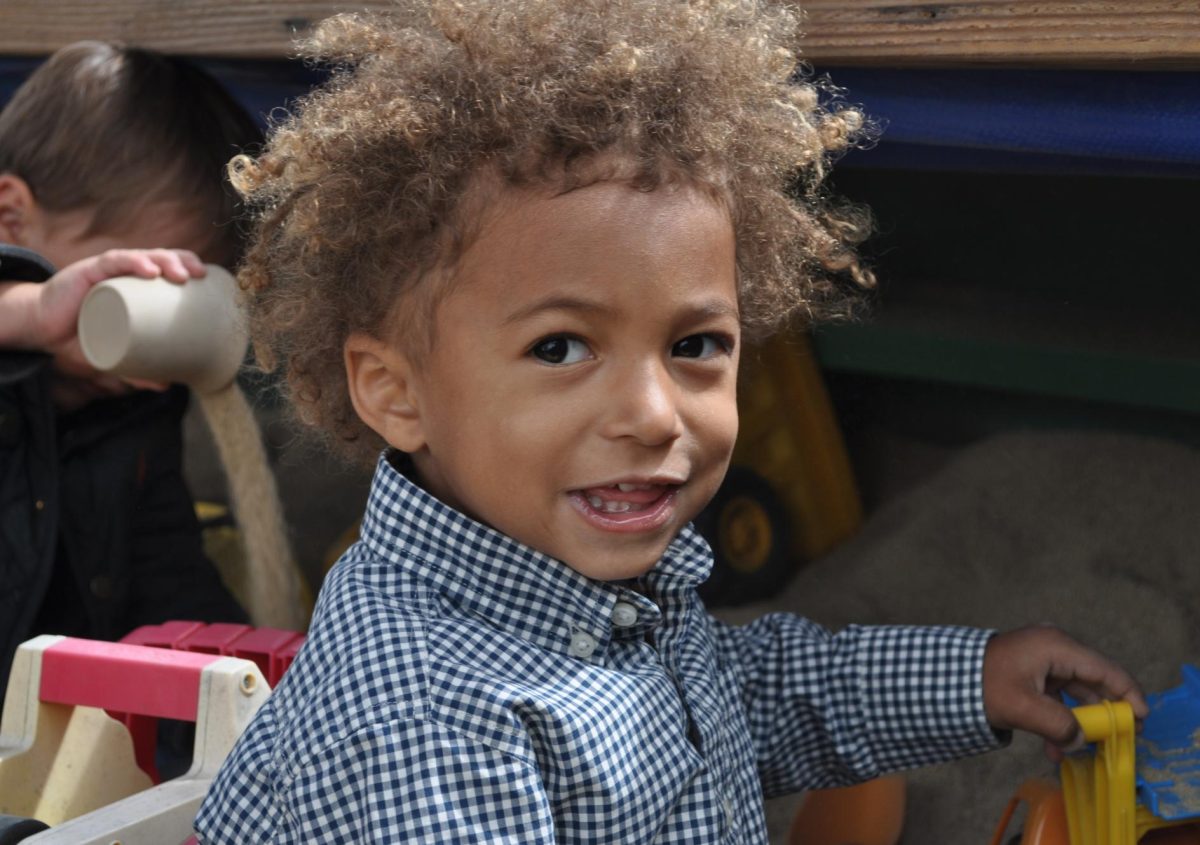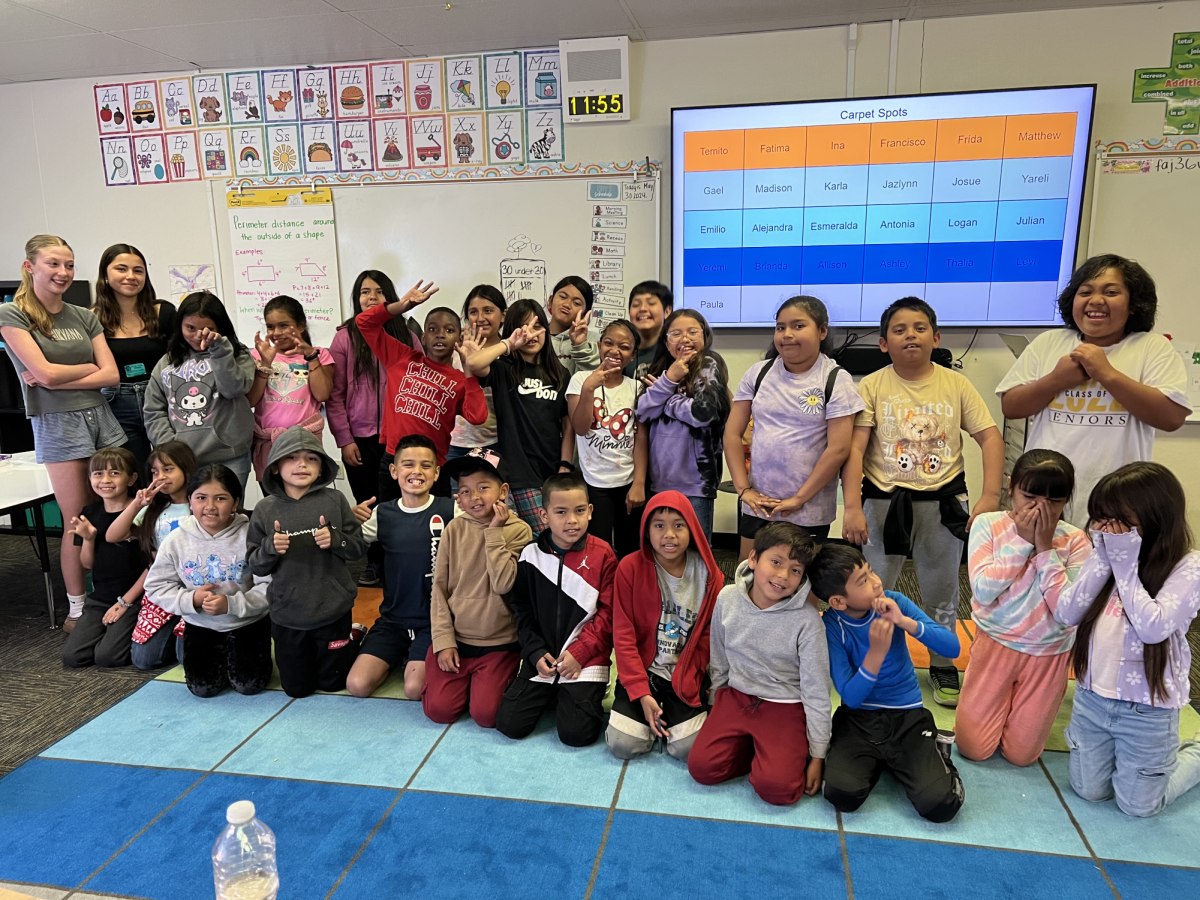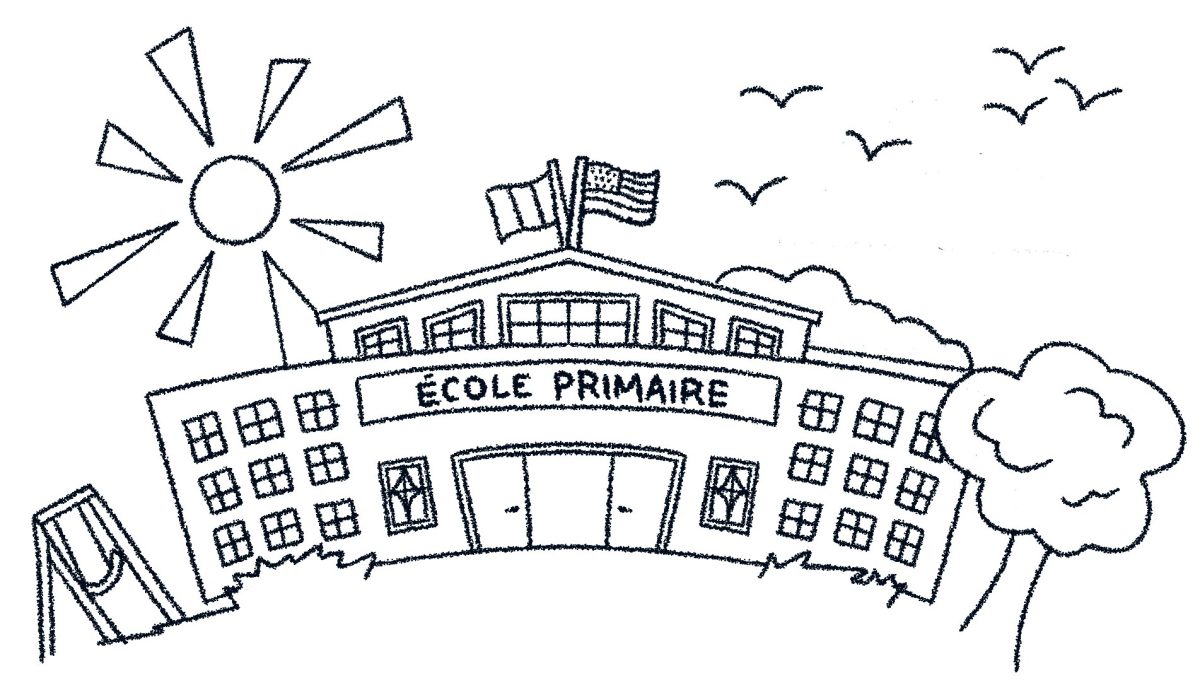Waves crash against ethnic studies teacher Mark Aquino’s 12-foot kayak. The culprit: a 6.8 pound, 26-inch halibut thrashing wildly to escape the clutch of Aquino’s mighty hook. But the halibut is out of luck as Aquino scoops his net into the ocean, hoisting the fish out of the water and onto the growing pile atop his boat. He’s competing in a local kayak fishing competition at Oyster Point in San Francisco — just one of the many ways fishing plays a role in his life.
It wasn’t always like this for Aquino. While his friends often speak fondly of childhood memories in the great outdoors, those were memories he never got to make. “I grew up on the east side of Oakland, California, which was a tough place to grow up,” Aquino said. “I grew up in a neighborhood that was pretty tough. And I grew up in an immigrant family [that was] working class.”
While Aquino’s family still spent time together, fishing was something that required a lot of free time and money for equipment. So, as Aquino got older, he wanted to make up for what he had missed. “Later on in life when I finally had a job with disposable income, I was just like, ‘Wait, […] what did I never really learn?’ And a lot of colleagues or friends would talk about going fishing,” Aquino said.
He began to consider what might come from learning this new skill. “Maybe by learning how to fish, I could change my relationship with food, and maybe that will be something in the future that I want to pass on to my kids,” he said. He also sought a deeper connection to the ecosystems around him and a greater appreciation for taking sustenance from another life.
It wasn’t just Aquino’s past pushing him towards fishing. In his adulthood, he grew consumed by working multiple jobs and struggled with his mental health. “It was like [fishing] is my chance to afford myself like a mental escape from these things. I’m going to dedicate all my energy to focusing on how I make myself a better person. […] How do I get myself to a point of peace where I can process these things? Because when I go out fishing, it’s the most mindless thing I do,” he said.
Books, the internet, practice and perseverance were key to Aquino’s growth as a fisherman. “Once I started trying to learn all this fishing stuff, I realized this is hard,” he said. “And, like, there are plenty of days where you don’t catch anything. But you kind of have to go into it with the mentality that you either win or you learn. You don’t lose.”
One platform Aquino relied on heavily was YouTube. He watched explanatory videos and connected with others interested in fishing. As his skills improved, he wanted to give back. “Once I started getting good enough [at fishing], I realized, ‘Hey, this could be an opportunity where I get more people involved in being in the outdoors. What if I just filmed myself?’”
Aquino already had some of the right equipment, including a plethora of GoPros thanks to a big win at a cruise ship’s arcade. “I cleaned them out. And then I got to a point where I got banned [from the arcade],” he said.
He started a YouTube channel called “Outdoor School of Thought” to document his fishing adventures, including all the inevitable and comical mishaps of fishing. “My channel is pretty goofy. Like, if I fall in the ocean, I keep that footage to show that […] it’s not always serious or it’s not always easy,” he said.
Spreading his passion didn’t stop at YouTube. Aquino began teaching his family and even his students how to fish. He organized a fishing club at his previous school, Abraham Lincoln High School, where he would take his students out fishing on Sundays. The next day at school, he would teach them how to gut and prepare the fish they caught together. The club’s fish tacos were a hot commodity at lunchtime. He hopes to bring this club to the Menlo community if he can find students interested in running it.
Ultimately, though, fishing is something Aquino does for himself. He enjoys delving into fishing techniques beyond the traditional rod, like Poke Pole fishing in tide pools. “The more involved type that I do is I actually wear waders up to my chest. And I’ll be in the water almost up to my belly, and I have this long bamboo pole and a coat hanger. And then I’ll go into these rocks and I’ll be able to pull fish out,” he said.
Catching the largest monkeyface prickleback eel in California is an aspiration for Aquino. “I want something to my name, so when I go out there I’m always trying to wrangle the biggest eel,” he said.


